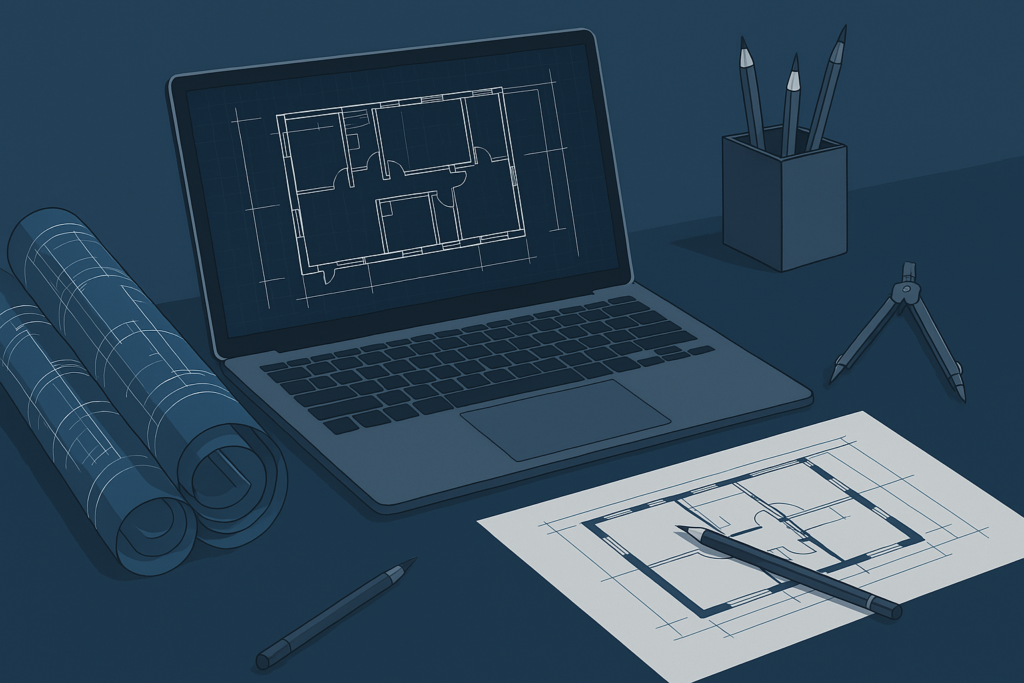Actually, in the eyes of the law,
You don’t need a real estate agent if you want to buy a newly built house. But it is certainly a good idea to get one. An experienced realtor is like a guide through builder contracts, a source of information when it comes to negotiating upgrades or prices, understanding timelines, and making sure you are not cheated. The most exciting part? Usually, the builder covers your agent’s commission.
Understanding the Role of a Real Estate Agent in New Construction
Real estate agents play a significant role in assisting you with finding listings, negotiating offers, and arranging inspections when you buy a resale home. Their role in a new construction transaction, however, changes a little bit, but is still equally important. They take you through a complicated journey that involves agreements with builders, timelines of construction, choice of design, and legal paperwork.
On the other hand, the builder has their own representatives or sales agents on-site. These people are remunerated to work for the builder’s cause, not for yours. A buyer’s agent, therefore, makes sure that your interests are always there.
In Commercial development, developers are inclined to use commercial construction estimating services to anticipate the costs with more accuracy and to manage the financial risks before the work begins. Likewise, a buyer’s agent is on your side to help you figure out the cost factors of upgrades, potential overruns, and contract fine print in residential new construction, which can avoid problems in the future.
The New Construction Buying Process
Purchasing a new home that is just constructed is not only about choosing a floor plan. However, it is a process that is well organized and includes selecting a building contractor, choosing a plot of land, signing detailed contracts, and inspections before the final closing.
Typical Steps Include:
- Visiting model homes and neighborhoods
- Examining builder options and upgrades
- Signing a purchase agreement
- Selecting design preferences
- Overseeing the build process
- Doing walkthroughs and final inspection
- Completing the purchase of the house
A real estate agent can assist in each of these stages, helping you interpret choices and avoid financial pitfalls.
Can You Buy Without an Agent?
You have an option to purchase a property without the help of a real estate agent, and some buyers do that, especially if they have previous experience or are buying from a highly trustworthy builder. Still, it means that you are alone all the way when the following things come up:
- Understanding complex builder contracts
- Deciding on a fair price for lot premiums or upgrades
- Managing delays or disputes during the build
- Knowing your legal rights if something goes wrong
Going without professional representation might be cheaper, but can easily result in a bill much bigger than what you thought you “saved”.
Advantages of Using a Real Estate Agent
1. Professional Contract Review
Usually, a builder’s contract contains different provisions from a normal real estate transaction. You have to be aware that these may restrict your ability to get out or cause the construction to be delayed more than you expected. An agent will show you where the dangers are.
2. Negotiation Power
A competent agent may negotiate for:
- Paying by the builder of closing costs
- Free or discounted upgrades
- Lot premium reductions
- Appliance or landscaping packages
Those extras can be worth a few grand, you know.
3. Construction Oversight
Your agent may:
- Attend progress walkthroughs
- Recommend third-party inspections
- Assist with repair requests before closing
4. Local Market Expertise
Agents understand how your chosen community compares to others nearby, so you can avoid overpaying or choosing a poor investment.
Disadvantages of Using an Agent
1. Some Builders Discourage It
Some builders do not allow the use of agents for the promotion of their projects, as they believe that they can be the ones who sell the house. Such builders may, however, offer incentives, such as lower closing costs or discounts, but only to buyers who have no agents. These offers are designed to cut out commissions but may come at the cost of buyer protection.
2. Inexperienced Agents
Not every agent is a new build. An inexperienced agent might misunderstand builder timelines, miss construction delays, or fail to negotiate effectively.
Who Pays the Commission?
In most cases, the builder pays the buyer’s agent commission from their marketing budget. It doesn’t raise your home’s price or cost you extra.
| Party | Pays Buyer Agent Commission? |
| Buyer (you) | No |
| Builder | Yes (usually 2.5–3%) |
| Seller’s (builder’s) agent | Paid by the builder |
It’s always a good idea to take your agent along during your first visit to the model home or sales center. If you don’t, the builder may refuse to share the commission with you later on.
Builder’s Agent vs. Buyer’s Agent
Builder’s Sales Rep
- A person who works for the builder
- Is selling focused on inventory and upgrades
- He is not your representative, and hence, your interests are not protected
Buyer’s Agent
- Is a person who works for you
- It is an independent party that gives you advice
- Deals with contracts, negotiates, and organizes inspections
Your agent is a must-have for balance. Without him, the only person who will show you the way will be the one paid by the seller.
What About Customizations and Upgrades?
The process of selecting upgrades can be tricky and expensive, but your agent would be there to discuss all options. Some are the ones that will be a long-lasting benefit to you, and others are simply overpriced. Your agent can do it for you which options are worth the money.
Examples of Smart Upgrades:
- Major changes (extra bedroom, extended garage)
- Kitchen cabinetry or countertops
- Energy-efficient windows or HVAC systems
Low-ROI Upgrades:
- Expensive lighting packages
- Wall textures or premium paint
- Fancy ceiling fans or fixtures (often cheaper after move-in)
Experienced agents can match the prices of builders with the averages in the market and give you an opinion about the best time to act (upgrade now or later).
Financing and Preferred Lenders
Often, builders entice a buyer to work with their preferred lender by offering a credit at closing. Although this may seem like a winning situation for you, it is advisable to check out the rates and terms offered by an external lender.
Here is how a real estate agent can assist you:
- He/ she can put you in contact with credible lenders
- They can help you compare different loan offers
- Ensure you do not pay more than you should in the case of hidden fees
Walkthroughs and Final Inspection
Indeed, new houses may not come with all defects. A professional agent guarantees that all defects are gone during:
- Pre-drywall walkthrough (framing, electrical rough-ins)
- Final walkthrough (before closing)
You might be told to employ a private inspector. It’s certainly a good idea to have a second opinion while the builder is doing their own, to make sure that no mistakes like these are missed:
- Uneven floors
- Leaky windows
- Misaligned doors
- Electrical or plumbing flaws
When Might You Skip an Agent?
If you fit into the below categories, you might decide not to go with a buyer’s agent:
- You’re an experienced investor or builder
- The builder offers a strong incentive for not using one
- You’ve already consulted a real estate attorney
Nevertheless, it is still suggested that you have a free consultation with an agent.
When Should You Bring the Agent?
Make sure you take your agent along to your first visit to the builder’s sales center. Otherwise, the builder may decide not to pay the commission, and your agent may not be able to represent you.
For first contact, buyer registration is generally necessary for builders.
Questions to Ask Before Hiring an Agent for New Construction
- Have you sold houses that were newly constructed?
- Is this the first time you are going to work with this builder?
- During all the walkthroughs, will you be there with me?
- Besides the builder papers, can you also check the additional agreements?
- What’s your strategy for negotiating builder incentives?
A knowledgeable agent should answer “yes” to most of these.
FAQs
1. Is hiring a real estate agent mandatory for new construction?
No, it’s not mandatory but it’s highly recommended to protect your interests.
2. Will hiring an agent increase my home price?
No. Builders usually pay the agent’s commission. It doesn’t affect the price you pay.
3. Can I hire an agent after visiting the builder’s sales office?
Usually not. Many builders require agent registration at your first visit.
4. What’s the difference between a builder’s agent and a buyer’s agent?
A builder’s agent represents the builder. A buyer’s agent works solely for you.
5. Can a real estate agent help with upgrades and design choices?
Yes. A good agent will advise on cost-effective upgrades and resale value.
For More Information Visit Website



